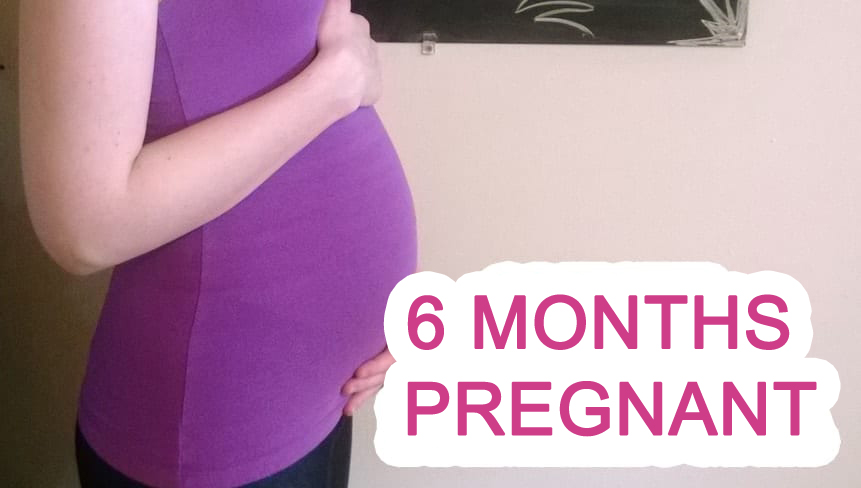In the spectacular journey of pregnancy, the six-month milestone is a game-changer for both mom-to-be and the budding life within. It’s an exciting phase where you’re past morning sickness and have entered the age of prominent baby bumps, kicks, and even hearing your baby’s heartbeat! If you’re at this pivotal stage – sit back, relax, and browse through our comprehensive guide where we unwrap everything from your baby’s development to symptoms you may experience, and imperative health protocols at six months of pregnancy. Get ready to delve into the fascinating world of mid-pregnancy milestones amidst surprises, changes, and astonishing biological miracles that lie ahead!
During the sixth month of pregnancy, commonly known as the second trimester, you may experience symptoms such as heartburn, backaches, hot flashes, dizziness, leg cramps, and a fast heartbeat. At this stage, your baby’s lungs are fully formed, their sucking reflex is improving, and they might respond to loud noises or your voice by moving. Additionally, your baby could weigh more than 1 pound and be almost 12 inches long. It is important to maintain a healthy lifestyle with moderate exercise and diet while consulting with your healthcare provider for personalized guidance.
Table of Contents
Six Months Pregnant: Your Body’s Changes
At six months pregnant, your body is going through several significant changes. Your waistline continues to expand, and you may notice that the baby bump is now more prominent. You may experience various symptoms ranging from mild discomfort to severe pain. Your abdomen may feel heavy, and you’ll likely get tired easily. Additionally, hormonal fluctuations can impact your mood and energy levels.
It is vital to take care of your body during pregnancy – eat healthy meals that promote your health and that of your unborn child, exercise moderately as approved by your healthcare provider, and stay hydrated. Get enough rest when possible, wear loose and comfortable clothing that will not restrict blood flow or put pressure on your growing belly.
Common Symptoms and How to Cope
As mentioned earlier, various symptoms come with being six months pregnant. It’s important to note that not every woman experiences all these symptoms at the same intensity level or even experiences some altogether.
Some common symptoms at this stage include heartburn, backaches, hot flashes, dizziness, leg cramps, and a fast heartbeat. One way to cope with heartburn is avoiding spicy, acidic, or fatty foods while eating smaller meals for slow digestion might help ease the pressure in your tummy area. Regular physical activity such as yoga can lessen back pains while taking frequent breaks from standing or sitting for long periods also can help.
When feeling dizzy or faint during pregnancy, it’s essential to lie down on one side immediately to regulate blood sugar levels and stabilize blood pressure.
If you’re dealing with leg cramps frequently, lying down opposite the affected limb with legs straightened and raising the legs above the hips level against a wall could help alleviate discomforts.
Moreover, engagement in stress-relieving activities like meditation or deep breathing exercises should offer calming effects mentally when experiencing hot flashes often encountered due to hormone fluctuations.
Remember to stay hydrated, eat plenty of fluids-rich fruits and vegetables like watermelon or cucumber, and avoid driving or working with heavy machinery when feeling dizzy and light-headed.
Physical Changes and Your Belly Appearance
As you enter the sixth month of your pregnancy, it’s natural to experience many physical changes in your body, particularly within the belly region. At this point, you will most likely have gained somewhere in the range of 10-15 pounds. While weight gain is a healthy sign for both you and your baby, it can be challenging for some women who may be concerned about their appearance. The truth is that your body is changing every day to support the growth of your baby. Don’t be too hard on yourself or feel like you need to fit societal beauty standards. Remember, every pregnancy is different, and your unique journey to motherhood should be celebrated.
It is also essential to practice self-care during this stage of pregnancy. Try moderate exercises like swimming or walking to help alleviate common pregnancy symptoms like backaches, hot flashes, dizziness, leg cramps, and a fast heartbeat.
Baby’s Development at Six Months
At six months pregnant, your baby has already undergone numerous transformations over the past few weeks. Their lungs are now fully developed, and they’re starting to get ready for life outside the womb by practicing their breathing method. Though their eyes are still closed shut with retina formation ongoing, babies typically respond to bright lights and loud sounds in anticipation of birth.
If you gently touch or press on your belly when your baby moves around, they might even wiggle or kick in response! By this point in the pregnancy journey, your little one is weighing more than 1 pound and could be almost 12 inches long — approximately the size of a spaghetti squash!
Fun fact: Your baby has started forming their own unique fingerprints and toe prints!
Of course, as much as we would love to peek into our little ones’ worlds as they grow inside us, there’s still so much we have yet to know and understand about their development. Nevertheless, your doctor will continue to keep a close eye on both you and the baby’s health as you approach the latter trimester of pregnancy.
Now that we know more about your baby’s development, let’s look further into what growth milestones they may be reaching at 6 months.
Growth Milestones
At six months pregnant, your baby is undergoing numerous developmental milestones. While still unable to communicate with you directly, they’re incredibly busy inside your womb. Around this time, a fetus can perceive light and dark changes outside the belly and respond to noise by kicking or moving.
Your baby’s eyes are almost completely formed, with fully functional retinas. Although their eyelids remain closed until around week 28, they can move their little eyeballs and blink in response to bright lights.
Additionally, your baby’s lungs are now completely formed and functional. They’ll start practicing breathing motions that prepare them for life outside the womb. Between weeks 24-28, create opportunities to read or sing to your baby openly as they now might start recognizing familiar voices from the environment outside.
- At six months pregnant, your baby is experiencing significant development. They can perceive light and respond to noise with movement. Their eyes are almost fully formed and can blink in response to bright lights. Their lungs are now functional, and they will begin practicing breathing motions. This is a good time to read or sing to your baby as they may start recognizing familiar voices from the outside world.
Baby’s Size and Weight
By six months, expect your baby’s average weight of 1 pound and around 12 inches long! At this point, your developing fetus has grown enough that they start to take up most of the space in the uterus. As a result, you should feel increased movement from all angles, which could result in occasional kicks on the bladder.
While every pregnancy journey is different, it’s typical for mothers to have gained somewhere between 10-15 pounds by this point. Please be aware though that these numbers are not absolute figures but rather generalizations – consult with your doctor if you’re unsure of whether you’re gaining too much or too little weight.
For women who started their pregnancy underweight, doctors may recommend gaining around 30-40 pounds throughout their nine months’. However, women who began overweight may only require around an additional ten pounds of weight gain throughout pregnancy.
It’s important to note that while it might feel like you need to eat for two people during pregnancy, maintaining a healthy diet is paramount; aim for nutrient-dense foods, protein-rich diets and moderate exercise. Sleep is also crucial not only for the baby’s growth but also for your overall physical and mental health.
Remember that each pregnancy is unique – what works for one woman may not work for another. It’s important to focus on your progress, ensuring both you and baby are healthy and happy through open communication with your medical team.
- According to the American Pregnancy Association, during the sixth month of pregnancy, the baby is about 12 inches long and weighs roughly 1 to 1.5 pounds.
- A study done by The University of Rochester Medical Center states that around the sixth month, babies begin responding to sounds by moving or increasing their pulse. This is an important part of their neurodevelopment.
- A 2020 report from the Johns Hopkins Medicine states that women at six months pregnant typically experience a weight gain of approximately 10 to 15 pounds.
Guide to Pregnancy Check-Ups at Six Months
As you progress through your second trimester, it’s time to focus on your health care and lifestyle adjustments. Here’s what you need to know about pregnancy check-ups at six months.
Lifestyle Adjustments and Health Care in the 6th Month
During your 6th month prenatal visit, your healthcare provider will conduct a variety of tests to ensure everything is on track with you and your baby’s health. This visit may include:
- Measuring the height of your uterus
- Checking your blood pressure and weight gain
- Listening to your baby’s heartbeat
- Measuring the size of your baby
- Checking for anemia
- Glucose screening test for gestational diabetes
It’s also vital that you share any concerns or questions you might have with your healthcare provider. Remember, they’re there to provide guidance and support throughout this exciting but sometimes overwhelming journey.
Beyond scheduling regular prenatal visits, making small lifestyle adjustments can help keep you healthy as well.

Elizabeth Baker is a mother of three, wife, and the passionate mind behind this pregnancy and baby development resource. She balances her love for understanding every stage of child growth with her duties as a parent. When she’s not sharing her experiences or studying child development, Sarah enjoys family time, reading, and practicing yoga. She believes in the power of shared knowledge to enhance the beautiful journey of parenthood. Read more About me.
